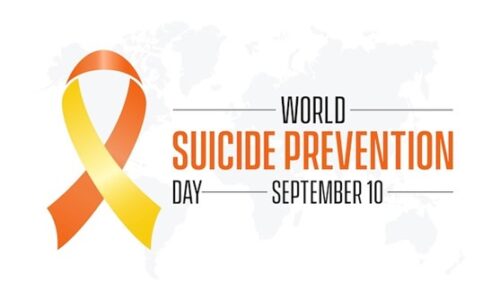Suicide prevention, Darwin is a critical issue that requires comprehensive services and support. In Darwin, there are several organisations and programs dedicated to addressing this urgent need. These suicide intervention and prevention services in Darwin offer a range of resources and assistance to individuals in crisis. With a focus on early intervention and support, these services aim to prevent suicide and provide the necessary care for those who may be at risk. One of the key components of these services is suicide prevention training Darwin. This training equips individuals with the necessary skills and knowledge to identify the warning signs of suicide and intervene effectively.
There are several organisations and institutions that offer suicide prevention training Darwin. These programs aim to educate the community, including healthcare professionals, teachers, and community leaders, on how to recognise the signs of distress and provide appropriate support. By investing in suicide prevention training Darwin is taking a proactive approach towards reducing the incidence of suicide in the region.
1. Introduction
Suicide prevention is a critical aspect of promoting mental health and wellbeing in Darwin, where the suicide rates continue to be notably higher than the national average. The Northern Territory faces unique challenges due to its remote nature, limited access to psychosocial support, and a significant percentage of the population falling into high-risk categories. To address these challenges, various organisations and programs are working tirelessly to provide comprehensive support and training to individuals, communities, and professionals.
In this article, we will delve into the efforts and initiatives undertaken in Darwin to prevent suicide and support those affected. We will explore the importance of suicide prevention programs, the role of Aboriginal and Torres Strait Islander communities, the impact of targeted suicide prevention activities, and the critical lifeline provided by The Way Back Support Service.
2. Understanding the Suicide Rates in the Northern Territory
The Northern Territory has the highest suicide rate of any Australian state or territory, highlighting the urgent need for effective suicide prevention strategies. Factors contributing to the higher suicide rates in the NT include the remote nature of many communities, limited access to mental health services, and the prevalence of risk factors within the population. It is crucial to address these issues through targeted interventions and support systems.
3. The Importance of Suicide Prevention Programs
Suicide prevention programs play a vital role in reducing the incidence of suicide and providing support to individuals at risk. These programs aim to identify and address the underlying causes of suicidal ideation and provide individuals with the necessary tools and resources to seek help. Through a combination of education, intervention, and support, these programs contribute to creating a culture of mental health awareness and resilience.
4. The Role of Aboriginal and Torres Strait Islander Communities
Aboriginal and Torres Strait Islander communities in Darwin face unique challenges when it comes to mental health and suicide prevention. Historical and ongoing factors such as intergenerational trauma, social and economic disadvantage, and cultural disconnection contribute to the higher risk of suicide among Indigenous populations. It is crucial to work closely with these communities, respecting their cultural practices and providing culturally appropriate support and interventions.
5. Targeted Suicide Prevention Activities and Approaches
To effectively address the high suicide rates in Darwin, targeted suicide prevention activities and approaches have been developed and implemented. These programs focus on specific groups identified as having a heightened risk of suicide and aim to provide tailored support and interventions. Let’s explore some of the key programs that are making a difference in suicide prevention.
5.1 Suicide Prevention Program
The Suicide Prevention Program dedicates its efforts to targeted suicide prevention activities and approaches for groups identified as having a heightened risk of suicide. By addressing specific risk factors and implementing evidence-based strategies, this program aims to reduce the incidence of suicide and provide individuals with the support they need.
5.2 Regional Plan for Mental Health and Suicide Prevention
The Regional Plan for Mental Health and Suicide Prevention focuses on identifying ways to better support individuals with their mental health and prevent suicide. This plan emphasises the need for coordination and collaboration among various stakeholders to ensure that services are more effectively delivered and accessible to those in need.
5.3 Suicide Prevention Trial : National
The National Suicide Prevention Trial adopts a systems-based approach, utilising a suite of evidence-based strategies that work together to reduce suicide attempts and deaths. This trial aims to identify and implement best practices in suicide prevention, with a focus on early intervention, community engagement, and improved service coordination.
5.4 Strengthening Our Spirits
Designed by Aboriginal and Torres Strait Islander community members in the Greater Darwin region, Strengthening Our Spirits guarantees cultural security. Developed as part of Darwin’s National Suicide Prevention Trial, this model aims to provide culturally appropriate support and interventions to individuals at risk of suicide. It recognises the importance of cultural connection and community engagement in promoting mental health and wellbeing.
6. The Way Back Support Service: A Critical Lifeline
The Way Back Support Service is a crucial program that supports individuals who have attempted suicide or experienced a suicidal crisis. Recognising the heightened risk of reattempt during the critical period after a suicide attempt, this program provides tailored support for up to three months after discharge from the hospital. Let’s explore the key aspects of The Way Back Support Service.
6.1 Overview of The Way Back Program
The Way Back program was initially launched in Darwin in 2014 as a trial funded by the Movember Foundation. It aimed to provide support to individuals who have attempted suicide or experienced a suicidal crisis. The program underwent independent evaluation and has since been funded by NT Health, NT Primary Health Network, and Beyond Blue, with TeamHEALTH delivering the service since May 2020.
6.2 The Way Back Support Service Referral Process
A referring agency sends a referral form on behalf of a client or potential client to the Way Back Support Service. The referral form collects key demographic and health information, assisting in the assessment and provision of tailored support. The service coordinator contacts the person referred within one business day to initiate the program.
6.3 Eligibility Criteria and Risk Factors
The Way Back Support Service considers eligibility based on certain criteria, including the nature of the suicide attempt or crisis, recent traumatic life events, current misuse of drugs or alcohol, and other risk factors. The program aims to provide support to individuals who are at high risk of reattempt and require ongoing assistance during their recovery journey.
6.4 Safety Plans for Mitigating Risk Factors
To mitigate the identified risk factors, The Way Back Support Service develops safety plans in collaboration with the participants. These plans outline strategies and resources to help individuals manage their mental health and navigate challenging situations. By addressing the risk factors, safety plans aim to reduce the likelihood of further suicide attempts and promote overall wellbeing.
6.5 Primary Nominated Clinicians for Support and Clinical Oversight
Clinical oversight is essential to providing comprehensive support through the Way Back Support Service. Participants are encouraged to nominate a primary clinician, such as a GP, private psychologist, or psychiatrist, who can provide support and clinical oversight throughout their recovery journey. Collaboration between the support service and clinicians ensures a holistic approach to mental health care.
7. Suicide Intervention and Awareness Training
WHS and Training Compliance Solutions is proud to offer Suicide prevention training Darwin. Our comprehensive suicide prevention training program Darwin is designed to equip individuals with the knowledge and skills needed to prevent and respond to suicide. With a focus on suicide prevention, our training covers topics such as recognizing warning signs, providing support, and connecting individuals to appropriate resources. We understand the importance of addressing mental health issues in the workplace and community, which is why we are committed to providing high-quality training in Darwin. By offering CALM suicide awareness training, we hope to create a culture of support and understanding, ultimately saving lives. Join us in our mission to make Darwin a safer and more compassionate place for all.
8. Collaborative Efforts and Funding Sources
Suicide prevention in Darwin is a collaborative effort involving various organisations, government agencies, and funding sources. The success of these initiatives relies on the collective commitment to addressing the complex factors contributing to suicide and providing comprehensive support and training. Funding from sources such as NT Department of Health, NT Primary Health Network, and Beyond Blue plays a crucial role in sustaining and expanding these vital programs.
9. Making a Difference: Success Stories and Impact
The efforts and initiatives in suicide prevention have made a significant impact on individuals and communities in Darwin. Success stories highlight the power of early intervention, tailored support, and community engagement in saving lives and promoting mental health. By sharing these stories, we aim to inspire hope and encourage continued commitment to suicide prevention efforts.
10. Conclusion
Suicide prevention in Darwin is a multifaceted endeavor that requires collaboration, support, and comprehensive strategies. Through targeted suicide prevention programs, culturally secure service models, critical support services like The Way Back, and professional training programs like TESIAT, significant progress is being made in promoting mental health and wellbeing. By continuing to prioritise suicide prevention, support those at risk, and raise awareness, we can create a community that values mental health and works together to prevent suicide in Darwin.
WHS and Training Compliance Solutions is proud to offer CALM suicide awareness training in Darwin. Our comprehensive training program is designed to equip individuals with the knowledge and skills needed to prevent and respond to suicide. With a focus on suicide prevention, our training covers topics such as recognizing warning signs, providing support, and connecting individuals to appropriate resources. We understand the importance of addressing mental health issues in the workplace and community, which is why we are committed to providing high-quality training in Darwin. By offering suicide prevention training Darwin, we hope to create a culture of support and understanding, ultimately saving lives. Join us in our mission to make Darwin a safer and more compassionate place for all.












